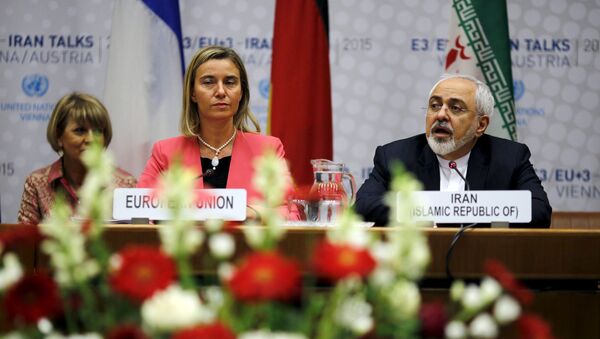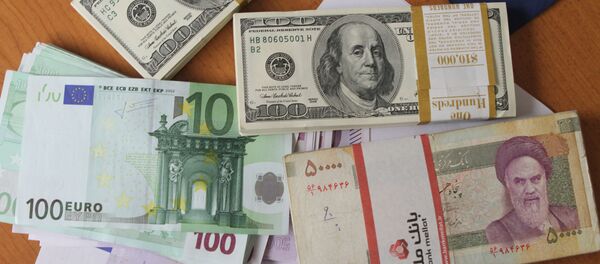Sputnik has discussed how Europe's relations with Iran will impact EU-US ties with John Dunn, Professor Emeritus of Political Theory at Cambridge University.
Sputnik: The relationship between the United States and Europe is a very important one, both trade and in terms of security, why is it that at this point in time there seems to be less cohesion between the world views? Is this just because of the president that’s currently in power or was there a movement towards this in past years?
John Dunn: Well, there have been movements in both directions over the long past obviously. I think the present movement is entirely a product of the Trump election. I mean, it’s not based upon any dominant political attitude in the United States population. It’s a very specifically political move by a very, very sectarian or factional president.
Sputnik: The cooperative tone that was struck between Zarif and Mogherini really differs from Washington’s claims and in any case the claims of Mike Pompeo who said that Europe is on the same page with the US on Iran and recognised Iran as the most serious threat to security in that part of the world. What is your take on that discrepancy? I’m just referring to what was said during this past meeting in Warsaw.
But I think that the really important structural consideration about the present position is that the European leadership is quite clear that it is not in the interest of Europe to be in a state of deliberate hostility to Iran. The approach that European powers have consistently taken to dealing with Iran as a state in the face of its development of a nuclear industry and potentially, obviously, the possibility of extending that into the acquisition of nuclear weapons, the European attitude to that is that the denuclearisation treaty was a major step forward in the assurance of peace internationally, and it is just in frontal disagreement with the United States and present United States administration over that.
Sputnik: How likely is it that Washington will be able to pressure the EU to break ties with Iran?
John Dunn: I think it’s very unlikely. There are ways in which the United States doesn’t have to pressure European states to have quite a drastic affect on the trading between Europe and Iran. What it needs to do and has done is to levy sanctions on European companies which trade in the United States and trade in Iran, and Europe is not too keen on that. It’s not happy about that arrangement structurally, because it sees it as an interference in their affairs, as indeed it is, with the freedom to trade of its own citizens and it doesn’t accept the extraterritorial authority of the United States to do that anymore than the United States would accept the same reciprocally. But that’s quite effective.
READ MORE: JCPOA Doomed? US Could Use All Tools to Push EU Out of Iran Nuclear Deal — Prof
For example, the major European banks, it would be very, very dangerous for them to have active relations with Iran and that’s why this new special structure has been set up. And I suspect that the special structure won't make a huge difference from the point of view of the biggest European companies. So in that sense the United States can get its way independently of the will of Europe as a state, but the European Union is very, very keen to preserve the denuclearisation accord and it is fighting hard to do so. Obviously, major European companies don’t have the same interest. They have an interest in being able to relate economically to the United States and not to be very heavily fined by American courts.
Views and opinions expressed in this article are those of the speaker and do not necessarily reflect those of Sputnik.




